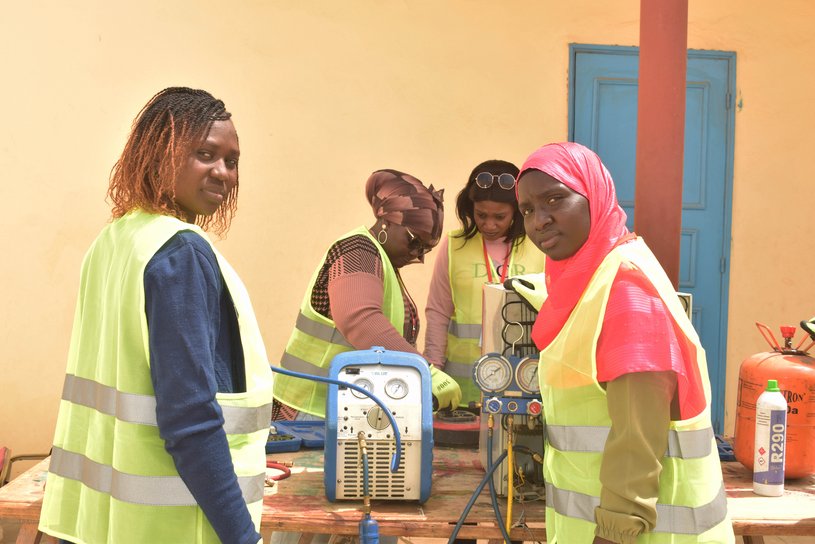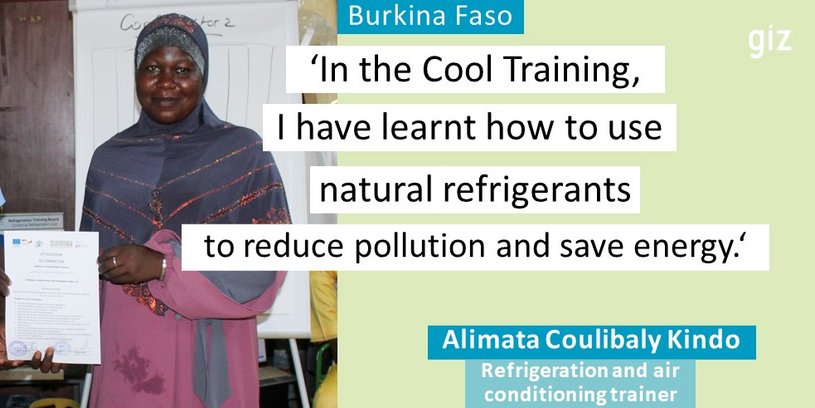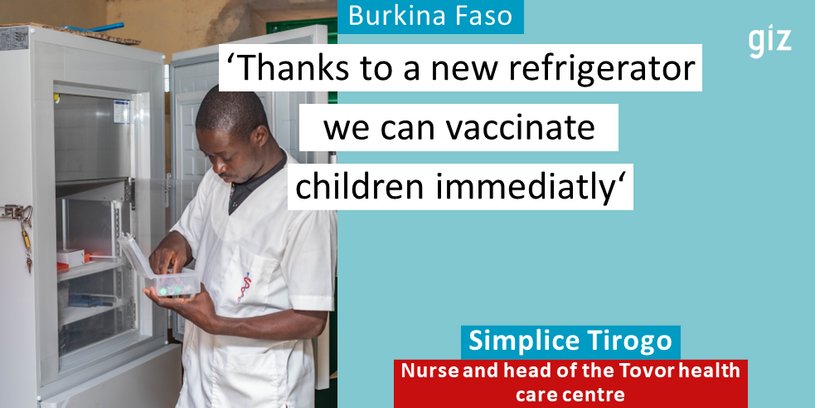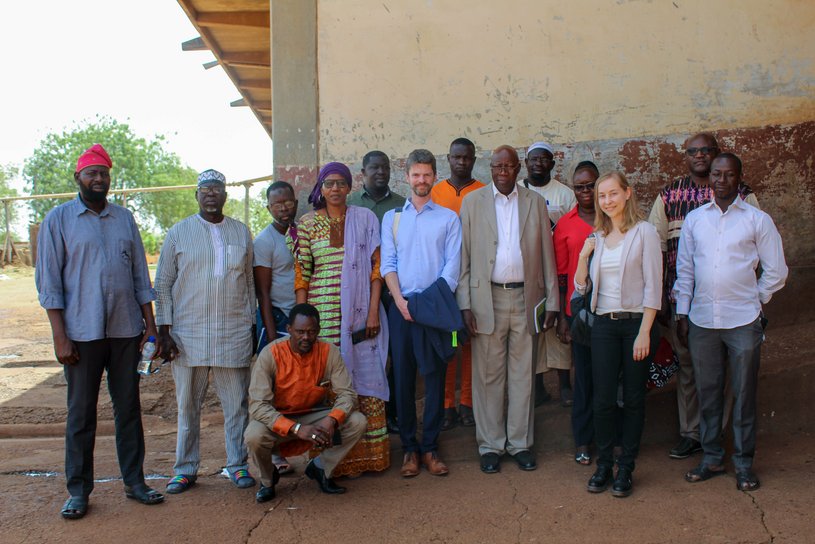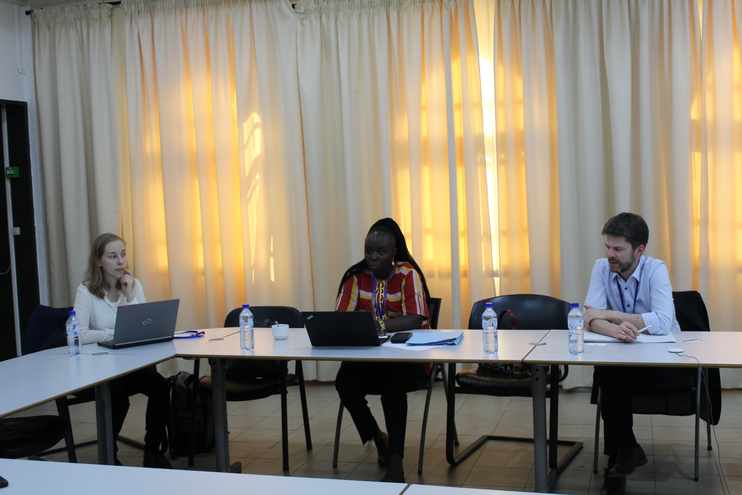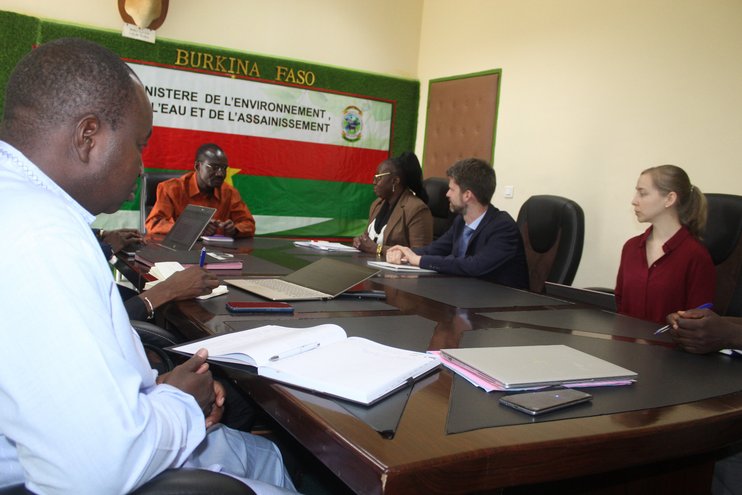The ROCA-GIZ Project Manager, Mr Nils Hansen, and the Junior Advisor, Ms Mairin Herm, visited Ouagadougou, Burkina Faso, from 13 to 15 March 2023 to supervise the project Refroidissement respectueux de l’Ozone et du Climat en Afrique de l’Ouest et Centrale (ROCA).
As part of the implementation of the ROCA (opens in a new window)project, a supervision mission led by the project manager, Nils Hansen, visits the ROCA project's partner countries. The project is active in Burkina Faso, Cameroon, Mali and Senegal. Co-funded by the German Development Cooperation and the European Union, the ROCA project is implemented by GIZ. The project aims to reduce the climate impact of the refrigeration and air conditioning sector in Burkina Faso and in the countries where it is implemented.
In Burkina Faso, ROCA works to increase the use of Green Cooling technologies through the improvement of the policy and regulatory framework on the one hand and technology transfer and capacity building for the use of Green Cooling technologies on the other.
Burkina Faso is the first country where the mission visited from 13 to 15 March 2023. During three days and with the accompaniment of the ROCA Coordinator, Ms Pauline Zaba, the mission held a series of exchanges with the project stakeholders. Thus, after having been received by the Minister of Environment, Water and Sanitation, the mission met with members of the National Ozone Office, the Directorate General for Environmental Preservation (DGPE) and the European Union in Burkina Faso.
The group also visited the vocational training centre in Ouagadougou, a training school in "refrigeration and air conditioning" and the Ouagadougou Abattoir frigorifique, which already has a ROCA pilot project. This field visit by the project managers made it possible to take stock of the achievements of the various pilot projects, the progress made and to gather the expectations and suggestions of the stakeholders.
Most cooling and air conditioning technologies are currently harmful to the ozone layer. Yet their consumption is increasing in Burkina Faso. Quick action is needed for the climate and the ozone layer. This follow-up visit to the ROCA project strengthens the collaboration in the promotion of Green Cooling technologies in Burkina Faso. It is about protecting the ozone layer, the climate and the planet by changing our behaviour!

